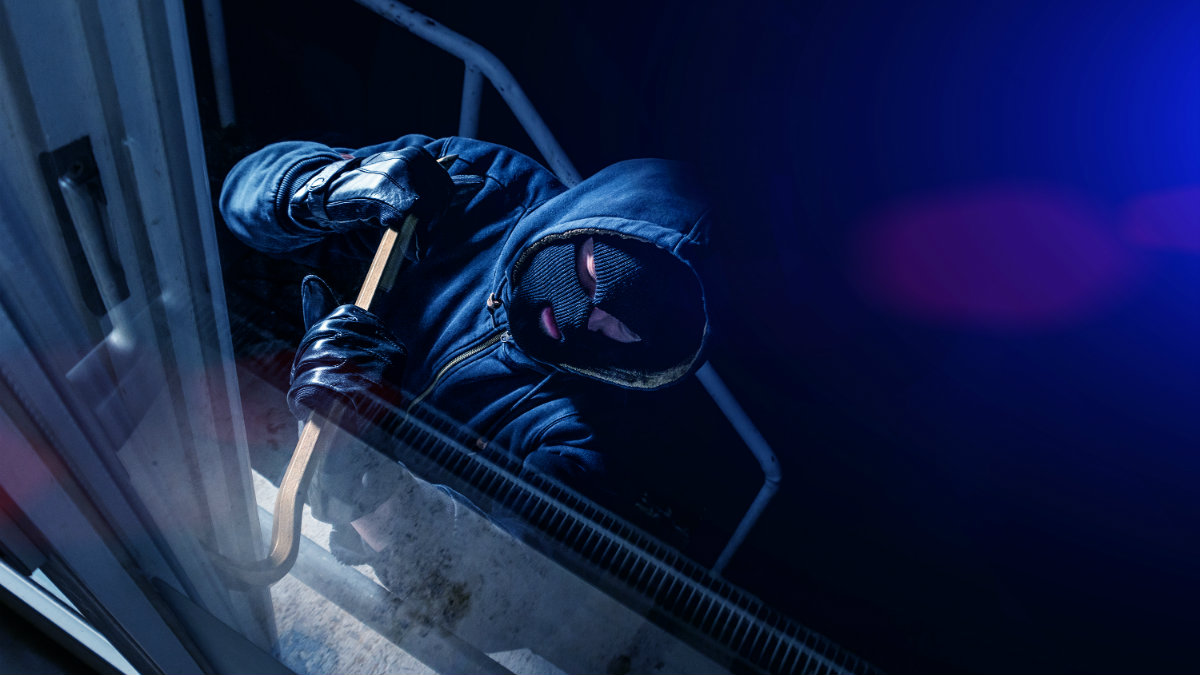When you go on a hike, the trail might seem like something organic — like it’s always been there and no one person planned how it would look. The reality is that creating hiking trails takes an entire team of planners and builders. And if they do their jobs right, it will feel like they were never there.
Need help setting up your home security system? SimpliSafe is just a call away
By now, it’s crystal clear that a home security system is a literal lifesaver. Depending on your choice, your cameras can catch burglars and even call for emergency help. Despite the many benefits, a few key concerns stop people from buying one.
One worry that holds people back is the idea that the setup will be complicated. Installation is as easy as pie if you go with our sponsor, SimpliSafe. For example, the motion sensors come with four adhesive stickers straight out of the box. You can peel them off and stick the motion sensors around the home.
You can do it yourself with a few easy guides or call them yourself. Tap or click here to get at-home help from a qualified technician. If you go the DIY route, you may have questions while putting everything together. That’s why we’re writing this easy guide to getting help while you secure your home.
Reaching out for help is quick and easy
A while back, Kim’s friend Kip moved into a new house. He had to take down all his old home security system parts.
Initially, he used stickers to put up his sensors and cameras. So when he took them down, they lost their adhesiveness. He needed new stickers to relocate his old security gadgets to his new home.
Luckily, a quick call to SimpliSafe took care of the problem. They sent him a moving package, which came with a lot more than just the new adhesives he needed. It also came with specialized containers that kept his sensors and accessories organized.
Here’s the number he called:
- SimpliSafe: (888) 692-0229
Later, Kip had trouble getting his base station to connect to his Wi-Fi network. He called and they walked him through the fix. That’s partly why Kim is such a big fan of SimpliSafe: The company is so easy to communicate with.
If you’re a SimpliSafe user like Kip or Kim, contact the support team at 1-800-297-1605 or email customer-support@simplisafe.com when you need help installing your system. The customer support team is open seven days a week, 365 days a year, from 8:00 a.m. EST until midnight.
When it comes to home security and customer satisfaction, they don’t play around
9 simple ways to protect your home from burglars

You might not have a criminal mind, but think how a crook finds the perfect houses to target. An empty home in a neighborhood where people keep to themselves, no cameras or alarms, and dark or dimly lit structures, right?
How trail designers build good hikes
Shopping for an outdoor security camera? 5 things to look for

In today’s world, you can never be too safe. There are many ways to secure your property, from locking your doors to keeping hackers out with antivirus software.
Take outdoor security cameras, for example. This popular technology helps you protect your home and loved ones from whatever may go bump in the night.
The future of particle accelerators
Particle accelerators have been in the news a lot in the last few years. The most famous one is the Large Hadron Collider at CERN. In this video, take a science deep dive into how particle accelerators will advance in the coming years and how that will play a role in the larger world of science.
How Spotify determines your personal music taste
Spotify is one of the world’s largest music streaming services with almost a quarter billion active users. And if you have ever used Spotify, you know it is impressive how well the app can get to know your music preferences. How does this software work? Through extremely complex math, of course.
Why do we find things cute?
Why do we find certain animals and other things adorable? There’s a complex science behind cuteness and how it affects our behavior and emotion. From baby animals to round, chubby faces, uncovering the evolutionary and psychological reasons why we find certain things cute is astounding.
Using Rubik's Cubes to create stunning art
Meet 16-year-old Daniella Chaim, a talented artist who uses Rubik’s Cubes to create incredible works of art. From portraits to abstract designs, Daniella’s unique approach to art is impressive and inspiring.
The strongest magnets ever made by humans
Magnets can lift heavy objects and create strong electrical fields. They are truly a marvel of modern science and technology. But how strong can they get? Get ready to be amazed by the strength and capabilities of the strongest magnets humans have ever made.
The rise and fall of Circuit City
Circuit City, the once-dominant electronics retailer, really struggled to keep up with the rapid changes in the industry. From its humble beginnings in the 1950s to its eventual bankruptcy in the late 2000s, this is the story of Circuit City’s decline and fall.
How Switzerland became a giant bunker
Switzerland has long been known as a neutral country. They stayed out of World War II and the Cold War. But how did they remain protected, especially when Axis powers surrounded them? It turns out they just kept digging.
Science video: How machines learn
Artificial intelligence seems to be all around us nowadays. AI can help you pick a movie to watch, make companies more money and even write a college essay. But how does AI learn? It’s all about teaching bots to teach other bots.
Why the US stores millions of oil barrels in caves
Seventy miles outside of Houston, there is a giant concrete facility. Deep beneath this facility lies a network of caverns filled with oil. This is part of our Strategic Petroleum Reserve. So, how did this plan come to be and how does it play a role in global economics?
Will we live on Mars someday?
Humans have long looked up in space and thought about how we could live among the stars one day. Right now, life on Mars would require a ton of equipment and shelter to protect us from the harsh environment. But what if we could make Mars more like Earth? How would we even do that? The answer is lasers!
In search of the darkest thing on Earth
What does it mean for something to be the color black? Simply put, it’s when light cannot be reflected by an object. You might be surprised to learn that scientists have been searching for ways to create the blackest black in the world. It turns out super black paints can change the science world.
Why the Ringling Brothers operated a secret spy agency
When you think of the Ringling Brothers, you probably think of trapeze artists, fire breathers and tigers jumping through hoops. Spies probably don’t come to mind. But in fact, there was a time when the company synonymous with the circus ran its own spy agency. The reason they did it is truly shocking.
The strange way airports get their call signs
Every airport has its own specific three-letter code. Phoenix Sky Harbor Airport is PHX, for example, and Denver International Airport is DEN. It turns out that the way these codes are assigned is much more complicated than just abbreviating the city or state. If you fly to Montreal, Canada the call sign is YUL. Why is this and how does the system work?
What would happen if a supernova hit Earth?
Supernovas are the largest explosions in the universe. They happen when a dying star sheds its outer layer in a moment of extreme energy. If they’re so powerful, what would happen if one were to happen close to us? Would we be able to survive?
Does the Earth have other moons?
The Earth may seem lonely in the vastness of space, but it has had one constant companion over the last 4.5 billion years: The moon. But it turns out that the moon we see each night might not be Earth’s only moon. It all depends on your perspective.
The world's tallest egg drop
Many of us did the classic egg drop science experiment in school. This is where you build a contraption to protect an egg from a steep drop. But what if you took that to the next level and created something to protect the egg if it fell from space? That’s precisely what one engineer tried. Did he succeed?
